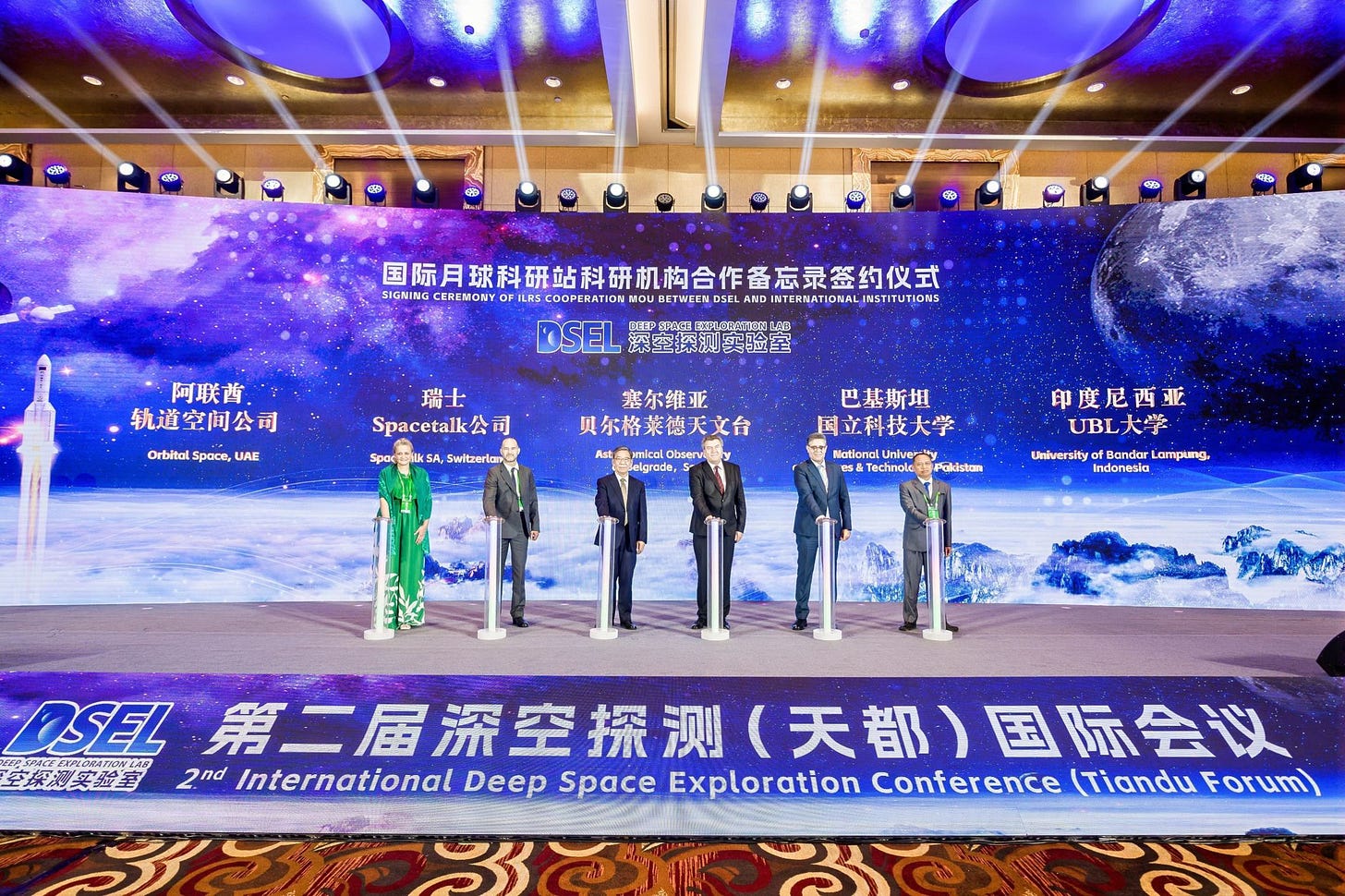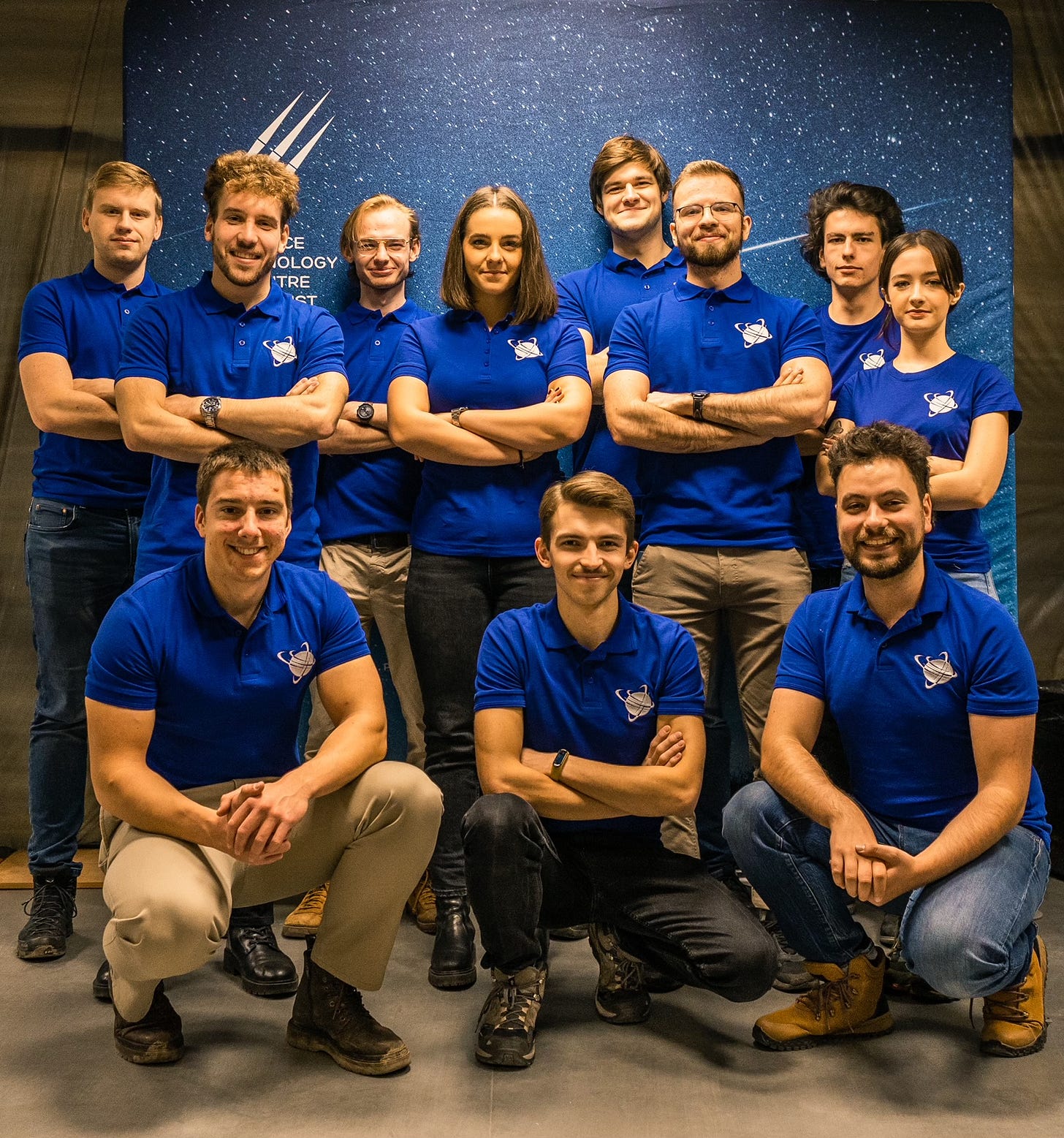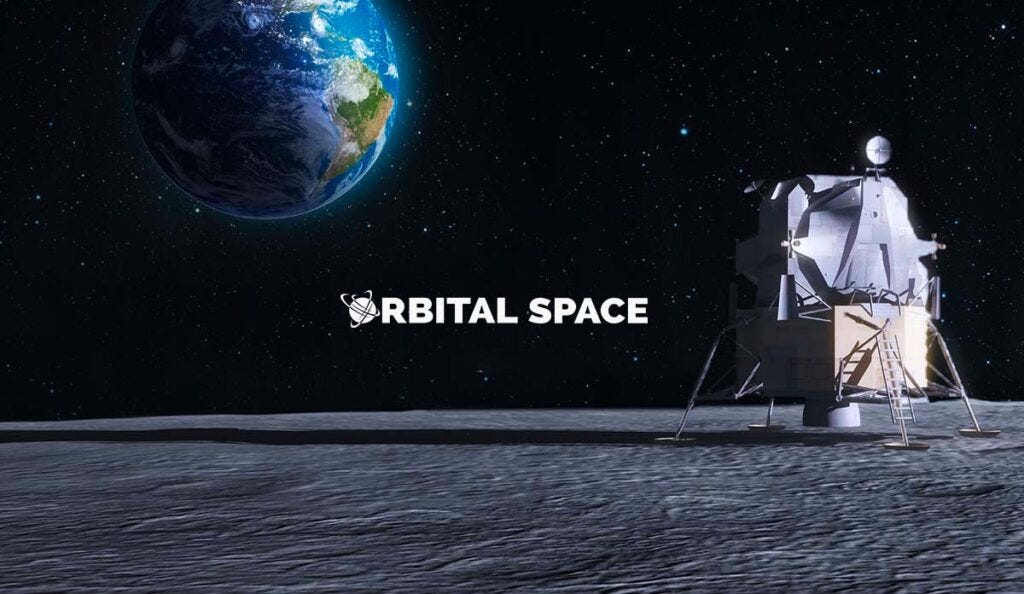Orbital Space: From Arab Classrooms to the Moon
An Interview with Bassam Al Feeli, General Manager of UAE-based Orbital Space.
UAE-based company Orbital Space has recently made headlines by signing up to China’s International Lunar Research Station (ILRS) initiative, but has been quietly influencing the Arab world’s growing role in space through its innovative and accessible space educational and training programmes across the region. The Middle East Space Monitor caught up with Orbital Space’s General Manager, Bassam Al Feeli, to find out more about the company’s origins, current activities, and its future plans.
Educational Space Missions and Industry Impact
Q: What inspired you to focus on educational space missions as Orbital Space's primary objective, and how do you see this approach shaping the future of the space industry in the Arab world?
A: Growing up in the Middle East during the 80s and 90s, space was largely inaccessible to most people in the region. I felt students here were at a disadvantage compared to those in countries with established space programmes. As a teenager, I wished for opportunities to engage in space activities.
When I witnessed the rise of commercial space and several GCC nations adding "building local capabilities in space technology" to their national strategic plans, I felt compelled to provide opportunities for space enthusiasts in the region. This led to the establishment of Orbital Space, with a focus on educational space missions.
Our goal is to enable public and private universities, and even schools, to have their own space missions. We provide comprehensive services, from initial planning to mission execution and operation. Additionally, we promote youth engagement in space activities through educational outreach, events, and competitions.
By doing so, we contribute to national strategic objectives of building local capabilities in space technology and preparing the next generation of space professionals who will drive and lead the industry in the near future.
The Lunaris Platform and Its Impact
Q: The Lunaris Platform will be the first private Arab mission to the Moon. How do you envision this milestone impacting space exploration efforts and public interest in the MENA region?
A: The Lunaris Platform, as the payload of the first private Arab mission to the Moon, represents a significant learning journey that began in 2022. We've gained tremendous knowledge and experience through this process, and we anticipate learning even more as we progress towards completing the mission in the coming years.
This milestone is a step towards building local capabilities in lunar missions while contributing to international lunar exploration efforts and increasing public interest in the MENA region and beyond. Our goal extends beyond providing opportunities for students; we aim to share our knowledge and experience with the broader space community.
We're presenting a paper on the lessons learned so far at the upcoming Space Research Conference 2024, organised by the UAE Space Agency. We hope that disseminating information about this lunar mission will spark greater public interest and inspire others to embark on missions to the Moon and beyond.
Measuring Long-Term Impact on STEAM Education
Q: Your company emphasises STEAM (science, technology, engineering, arts, and mathematics) education. How do you plan to measure the long-term impact of your programmes on students' career choices and the development of the space sector workforce?
A: Measuring long-term impact is challenging, but we employ several strategies:
1. Track participation and engagement data across programmes like the Orbital Pioneers Bootcamp and our educational partnerships.
2. Collect feedback from students, educators, and partners.
3. Monitor how participants engage with space sector opportunities through further education, joining space-related projects, or contributing directly to the workforce.
4. Create a strong Alumni network to continuously enhance our impact and connect new space professionals with the next generation of space sector champions.
Collaboration Challenges and Opportunities
Q: Can you elaborate on the challenges and opportunities you've encountered in fostering collaborations between academic institutions, private companies, and government space agencies for your projects?
A: The three sectors (academic, private, and government) have different mindsets and operating cultures, each with their own objectives and targets:
- Academic sector: Focused on teaching, accreditation, research publications, and job market demand.
- Private sector: Concerned with commercial aspects, product development, and maximising profits.
- Government sector: Prioritises governance issues, regulations, and risk minimisation.
The challenge lies in finding common ground and facilitating understanding between these sectors. For example, time is crucial for the private sector, while the academic sector follows a fixed calendar. The government sector tends to be risk-averse, whereas the private sector requires regulatory freedom to innovate.
In our projects, we often take on the role of mediator/translator to align stakeholders and resolve conflicts. Having experts who have worked across all three sectors helps us understand different perspectives and communicate effectively with each group.
Balancing Education and Scientific Rigour
Q: The lunar regolith experiment seems crucial for future lunar missions. How do you balance the educational aspects of student involvement with the need for scientific rigor in such critical research?
A: The payload is primarily educational, aiming to provide students with hands-on, real experience in developing experiments for lunar exploration. While students must follow the scientific method in preparing their experiments, it's important to manage expectations. The results and data will be preliminary and insufficient for drawing definitive scientific conclusions. The key is to focus on learning and gaining experience for future missions.
Ensuring Accessibility and Diversity
Q: Orbital Space offers various programmes from classroom learning to hands-on projects. How do you ensure these programs remain accessible to a diverse range of students, including those from underprivileged backgrounds?
A: We believe space exploration opportunities should be accessible to all. To ensure this, we:
1. Offer scholarships, sponsorships, and fee waivers to reduce financial barriers.
2. Design programs with flexibility, including both in-person and virtual options.
3. Partner with schools and organisations serving underrepresented communities.
4. Actively encourage and support participation from diverse backgrounds.
Democratising Space Access
Q: Your mission statement mentions "access to space for all." How do you define this vision, and what concrete steps is Orbital Space taking to democratise space access beyond educational programmes?
A: We define this vision as enabling broader participation in space activities, regardless of geography, economic status, or technical expertise. While we're still growing, we focus on educational missions as a starting point. We offer opportunities for students, researchers, and enthusiasts to participate in real space missions, such as sending experiments to the Moon or into space.
By providing affordable access to space missions and platforms, we empower individuals and institutions that traditionally wouldn't have the resources to engage in space projects. Our focus on open-source tools and shared resources further lowers the entry barrier for aspiring space innovators.
Through community events, partnerships, and accessible content, we're inspiring and involving a diverse audience, actively participating in the global space community where everyone has a voice and a stake in the future of space exploration.
Adapting to Industry Evolution
Q: The space industry is rapidly evolving. How does Orbital Space stay agile in adapting its educational programmes and mission objectives to keep pace with technological advancements and emerging space exploration priorities?
A: We stay current by actively collaborating with global experts, industry leaders, and educational institutions. We prioritise flexibility in our programme design, allowing us to quickly adapt to new opportunities and challenges in the space sector.
Future Expansion Plans
Q: Lunar exploration is just one aspect of space science. Are there plans to expand Orbital Space's educational missions to other areas like deep space exploration, asteroid mining, or Mars colonisation?
A: A lunar mission was the natural next step for Orbital Space after our previous low Earth orbit missions. After concluding our lunar mission, we will explore possibilities for educational deep space missions beyond the Moon. Stay tuned for exciting opportunities in the near future.

Regional Challenges and Opportunities
Q: As the founder of a pioneering space company in the UAE, what do you see as the biggest challenges and opportunities for private space enterprises in the region over the next decade?
A: One of the main challenges faced by the global space sector is the limited talent pool and workforce. The number of people interested in working in the space sector is relatively small compared to other more popular industries. Well-established sectors often offer higher pay and better job security, while highly talented individuals may choose to work at established space agencies or large space companies.
However, these challenges are matched by immense opportunities. For example, our collaboration and contribution to China's ambitious Moon base programme allows us to engage with experts from one of the leading lunar exploration teams. This opens up more opportunities for us and enables us to stay agile and focus on innovation.
We're well-positioned to overcome challenges and seize the opportunities ahead, helping to shape the future of space exploration in the UAE and beyond.





